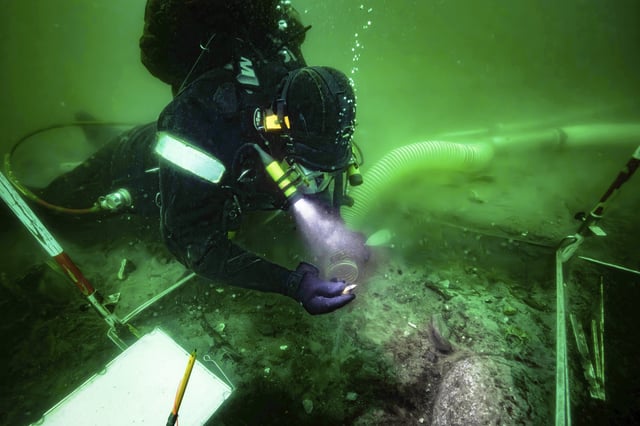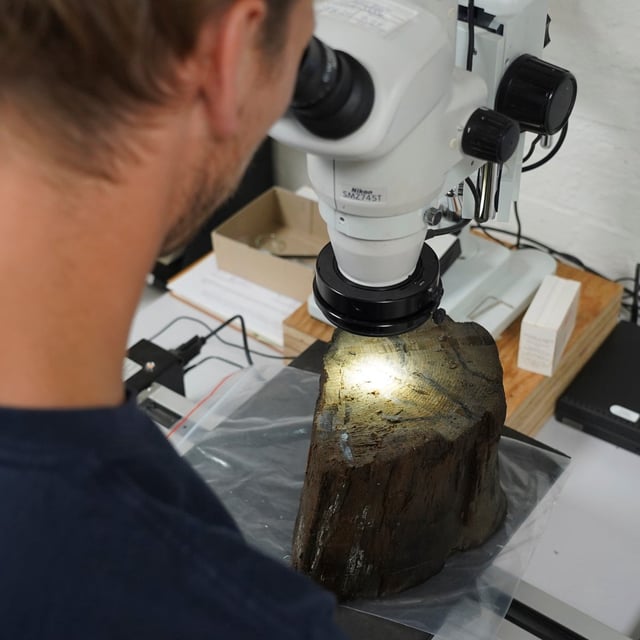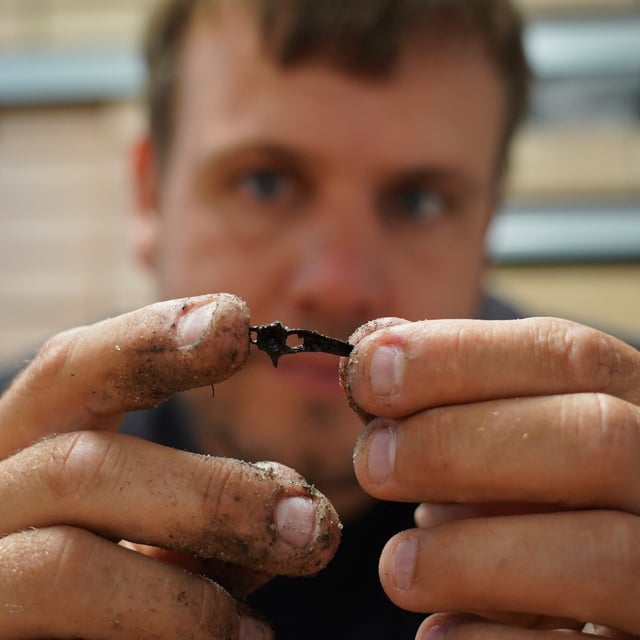Overview
- Divers excavated roughly 40 square meters at about 8 meters depth, recovering animal bones, stone tools, arrowheads, a seal tooth and a worked piece of wood.
- The settlement dates to around 8,500 years ago during rapid post–Ice Age sea-level rise that drowned former coastlines and displaced hunter-gatherer communities.
- Researchers describe the site as a time capsule where organic materials, including wood and hazelnuts, survived in an oxygen-free environment.
- The discovery is part of a €13.2 million six-year EU-funded program involving Moesgaard Museum, the University of Bradford and Germany’s Lower Saxony Institute to map submerged Baltic and North Sea landscapes.
- Analyses such as dendrochronology on submerged tree stumps are underway to refine dating and sea-level reconstructions, with follow-up dives planned off Germany and later at two North Sea locations.



